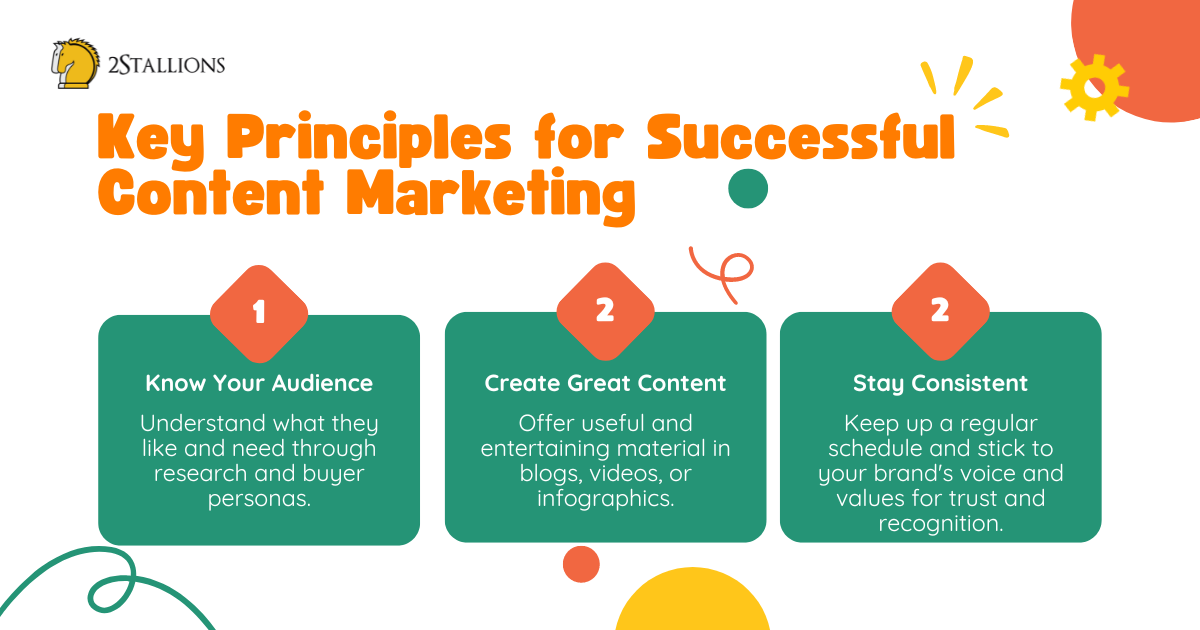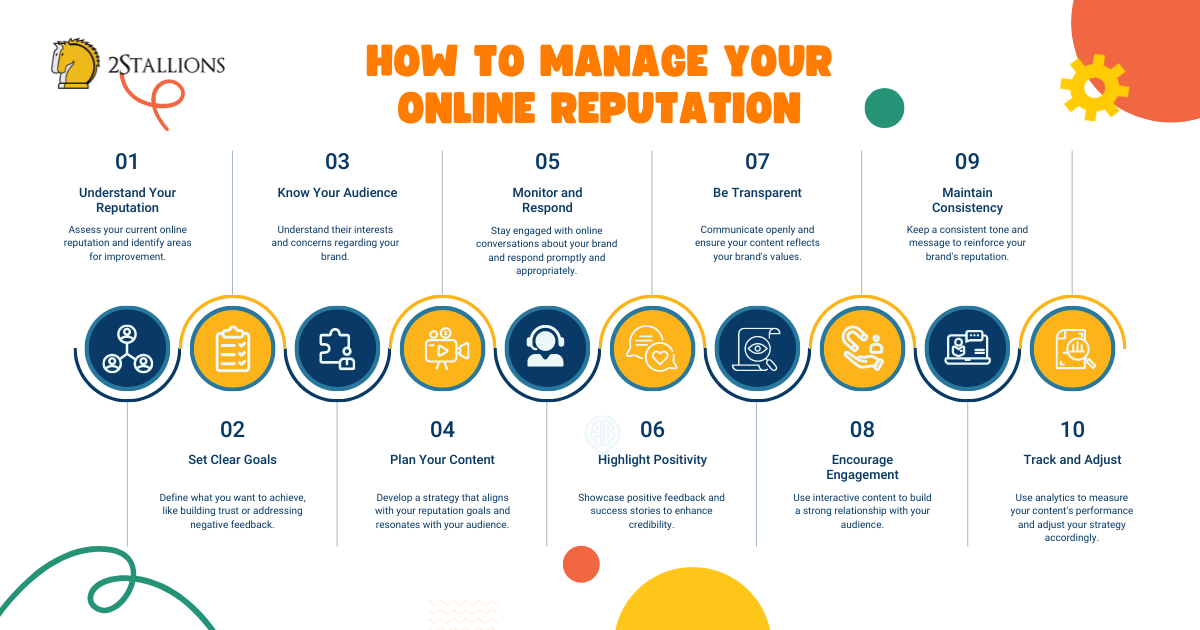SHARE

Building a solid brand reputation is crucial for businesses looking to stand out in today’s saturated marketplace. With consumers becoming increasingly discerning and wary of traditional advertising methods, companies must find new and effective ways to connect with their target audiences. One such method is content marketing, a powerful strategy that can help businesses craft their brand message and elevate their reputation. In this article, we’ll explore the ins and outs of content marketing and how it can be leveraged to build a formidable brand reputation that resonates with consumers.
Understanding the Power of Content Marketing
Content marketing is more than just a buzzword; it is a vital tool for businesses to communicate their values, establish trust, and ultimately drive customer loyalty. By creating and sharing valuable, relevant, and consistent content, companies can position themselves as thought leaders in their industry, significantly enhancing their brand reputation. This approach allows businesses to engage with their target audience on a deeper level by providing them with information, insights, and solutions that go beyond traditional advertising. Content marketing has become increasingly important in today’s digital landscape. With the rise of social media and online platforms, consumers have more control over their content. They can easily skip or block traditional advertisements, making it crucial for businesses to find alternative ways to reach their audience. Content marketing provides a solution by offering valuable content consumers seek out and engage with.
The Role of Content Marketing in Brand Building
At the core of content marketing is building a solid and authentic brand. Content allows businesses to showcase their unique personality, values, and expertise, creating a lasting impression on their audience. By consistently delivering high-quality content that aligns with their brand identity, companies can establish themselves as reliable and knowledgeable authorities in their field, bolstering their reputation and generating credibility. Brand building through content marketing is a long-term strategy that requires patience and dedication. It involves creating a consistent brand voice and tone that resonates with the target audience. By understanding the needs and preferences of their customers, businesses can tailor their content to provide value and address specific pain points. This approach helps build brand loyalty and encourages customer advocacy, as satisfied customers are more likely to share valuable content with their own networks.
 Key Principles of Effective Content Marketing
Key Principles of Effective Content Marketing
Executing a successful content marketing strategy requires adhering to a few key principles. First, businesses must understand their target audience and tailor their content to resonate with their specific needs and interests. Thorough market research and creating buyer personas can provide valuable insights into the target audience’s demographics, preferences, and pain points.
Secondly, creating valuable and engaging content is essential. Businesses can attract and retain their attention by offering useful information, insights, or entertainment to their audience. This can be achieved through various content formats such as blog posts, videos, infographics, or podcasts. The key is to provide content that is not only informative but also entertaining and shareable, encouraging audience engagement and interaction.
Lastly, businesses should strive for consistency in their content marketing efforts, creating a dependable presence that audience members can rely on. Consistency helps build brand recognition and trust, establishing a sense of reliability and reliability. This can be achieved by creating an editorial calendar and sticking to a regular posting schedule. Additionally, businesses should ensure their content is aligned with their brand voice and values, maintaining a cohesive and authentic brand image.
Content marketing is a powerful tool businesses can leverage to communicate their values, establish trust, and build a strong brand reputation. By understanding their target audience, creating valuable content, and maintaining consistency, businesses can effectively engage with their audience and drive customer loyalty. As the digital landscape evolves, content marketing will remain a key strategy for businesses looking to differentiate themselves and stay relevant in the competitive market.
Crafting Your Brand Message Through Content
To effectively use content marketing to build a strong brand reputation, businesses must ensure that their brand message is seamlessly woven into their content strategy. This requires a careful consideration of various factors, including:
Identifying Your Brand Voice
When developing content, it is essential to establish a consistent brand voice that conveys your brand’s personality, values, and tone. Whether a friendly and conversational tone or a more authoritative and professional voice, your brand voice should align with your target audience and consistently reflect across all content platforms. This ensures that your audience understands your brand’s identity and values clearly.
Aligning Your Content With Your Brand Values
Content marketing offers businesses an invaluable opportunity to communicate their brand’s values and beliefs. By aligning your content with your brand’s core principles, you establish trust and credibility with your audience and reinforce your brand’s unique positioning in the market. Whether it’s through informative articles, thought-provoking blog posts, or captivating videos, your content should consistently reflect your brand’s values to resonate with your target audience.
 Implementing a Content Marketing Strategy For Reputation Management
Implementing a Content Marketing Strategy For Reputation Management
Creating a reputation management-focused content marketing strategy involves several steps. First and foremost, businesses should define their objectives and identify the specific reputation areas they want to focus on. Once this is clear, companies can start developing a comprehensive content marketing plan that takes into account the following:
Steps To Create a Content Marketing Plan
- Research your target audience: Understand your audience’s needs, preferences, and pain points deeply. This will help tailor your content to resonate with them effectively.
- Set SMART goals: Define specific, measurable, achievable, relevant, and time-bound goals that align with your reputation management objectives.
- Create a content calendar: Plan and organise your content production and distribution schedule to ensure consistency and maintain audience engagement.
- Diversify your content formats: Explore different types of content, such as blog posts, videos, infographics, and podcasts, to capture your audience’s attention and cater to their preferences.
Monitoring and Adjusting Your Content Strategy
Regularly monitoring the performance of your content marketing efforts is crucial for assessing their impact and making necessary adjustments. By using analytics tools and tracking key performance metrics, you can gain insights into what is working and what isn’t. This data-driven approach empowers businesses to refine their content strategy, optimise engagement, and adapt to their audience’s changing preferences and needs.
Leveraging Different Types of Content For Brand Reputation
Content marketing presents businesses with a myriad of opportunities to showcase their brand and enhance their reputation. Two particularly impactful content mediums for brand reputation are blogs and social media.
The Impact of Blogs on Brand Reputation
Blogs allow businesses to establish themselves as industry authorities by sharing in-depth knowledge and insights with their audience. By consistently producing high-quality blog content that addresses their target audience’s pain points and interests, businesses can position themselves as go-to resources in their field. Blogs also provide an avenue for direct audience engagement through comments and feedback, fostering a sense of community and trust.
Using Social Media Content To Enhance Your Brand Image
Social media platforms offer businesses a powerful space to engage with their audience and bolster their brand reputation. Businesses can cultivate a strong brand presence and foster meaningful connections by sharing visually compelling and shareable content, such as images, videos, and infographics. Social media also allows for real-time customer interactions, enabling businesses to respond promptly to inquiries, address concerns, and showcase their commitment to customer satisfaction.
Measuring the Success of Your Content Marketing Efforts
Effectively measuring the success of your content marketing efforts is essential to refining and optimising your strategy. Some key metrics to track include:
Key Metrics To Track In Content Marketing
- Website traffic: Monitor the number of visitors, unique visitors, and page views to gauge the reach and impact of your content.
- Engagement metrics: Look at the average time on page, bounce rate, and social media shares to assess how actively your audience engages with your content.
- Conversion rates: Track the percentage of website visitors who take desired actions, such as subscribing to a newsletter or making a purchase, to evaluate the effectiveness of your content in driving conversions.
- Brand sentiment: Monitor social media mentions and customer reviews to gauge how your content positively shapes your brand’s reputation and sentiment.
Interpreting Data To Improve Your Content Strategy
Regularly analysing and interpreting the data collected from your content marketing efforts can gain valuable insights to enhance your strategy. Identify patterns, understand audience preferences, and adapt your content accordingly. Experiment with different approaches, measure the impact, and continuously refine your content marketing strategy to maximise your brand’s reputation-building potential.
In conclusion, content marketing offers businesses a powerful means to build a strong brand reputation. By understanding its power, crafting a compelling brand message, implementing an effective strategy, leveraging various content types, and measuring success, businesses can establish themselves as trusted authorities in their industry and foster lasting connections with their audience. Embrace the potential of content marketing and take your brand reputation to new heights.
Frequently Asked Questions About How to Use Content Marketing to Build a Strong Brand Reputation
What is the Role of Content Marketing in Building Brand Reputation?
Content marketing is crucial in building a brand reputation by establishing authority, fostering trust with the audience through valuable and relevant content, and enhancing online visibility and engagement.
How Can Businesses Create Impactful Content Marketing Strategies?
Businesses can create impactful content marketing strategies by understanding their audience’s needs, using storytelling to connect emotionally, consistently delivering high-quality content, and leveraging various formats and platforms for broader reach.
What Types of Content are Most Effective for Improving Brand Reputation?
The most effective content types for improving brand reputation include educational articles, engaging videos, insightful blog posts, informative infographics, and customer testimonials, all tailored to meet the audience’s interests and needs.
How Can Content Marketing Influence Consumer Perception of a Brand?
Content marketing can positively influence consumer perception by providing valuable information, solving problems, showcasing expertise, and creating an emotional connection, leading to increased trust and loyalty towards the brand.










